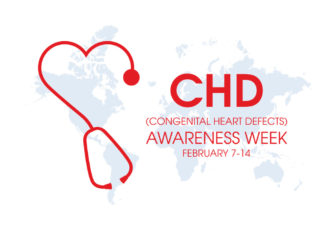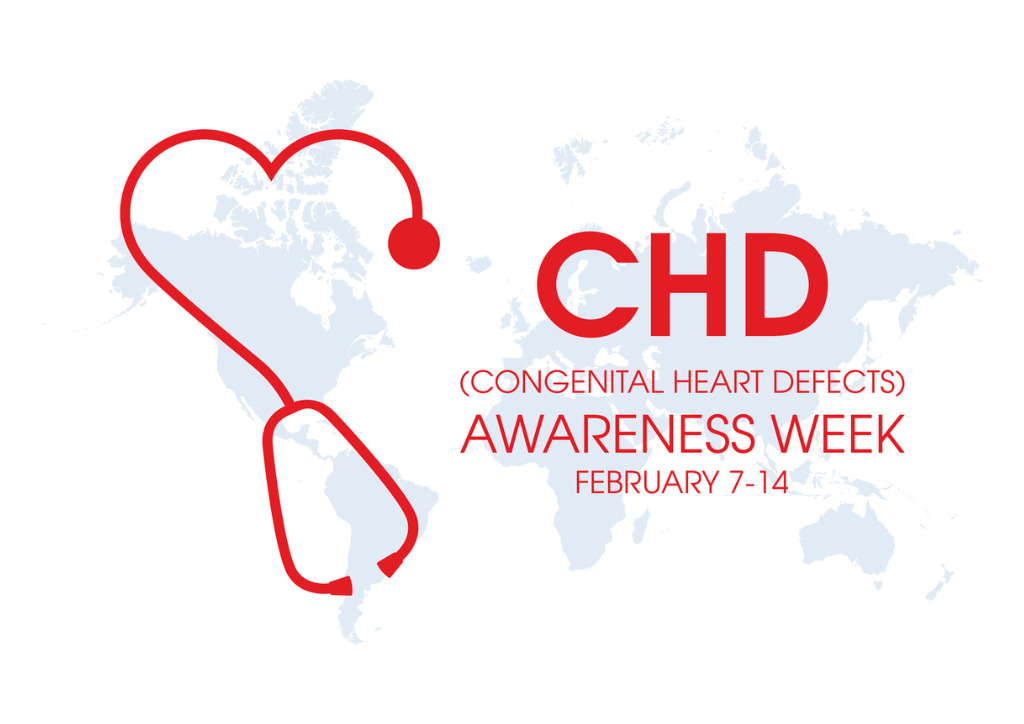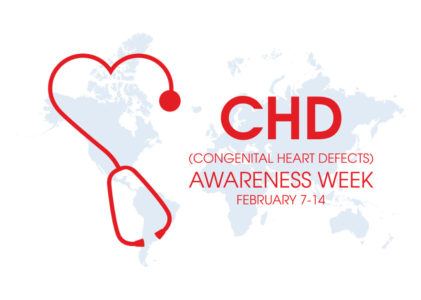 American Heart Month is recognized in the month of February and brings awareness to the importance of cardiovascular health. According to the Centers for Disease Control and Prevention, CDC, heart disease is currently the leading cause of death for both men and women and people of most ethnic and racial groups in the U.S. Understanding risk factors and what to do to improve your heart health can save your life.
American Heart Month is recognized in the month of February and brings awareness to the importance of cardiovascular health. According to the Centers for Disease Control and Prevention, CDC, heart disease is currently the leading cause of death for both men and women and people of most ethnic and racial groups in the U.S. Understanding risk factors and what to do to improve your heart health can save your life.
Congenital Heart Defects (CHD)
Congenital Heart Defect Awareness Week is observed each year from February 7–14 to promote awareness about CHDs. Congenital heart defects, or CHDs, are heart defects that are present at birth and are the most common type of birth defect. An estimated 1 million children and 1.4 million adults in the U.S. were living with a CHD in 2010, according to the CDC. A CHD results when the heart, or blood vessels near the heart, do not develop normally before birth and changes the way the heart works. CHDs can be minor to very severe, requiring life-saving surgery in some cases.
Typically, if a doctor suspects a fetus might have a CHD, the doctor will order the mother to have testing done using a fetal echocardiogram, which will create images of the baby’s heart through ultrasound images. Sometimes, CHD is not detected until after birth, at which time testing such as an echocardiogram can be used to confirm the diagnosis.
What Causes CHDs?
Unfortunately, the causes of CHDs are unknown. Sometimes, CHDs are caused by changes in chromosomes or individual genes. CHDs may also be caused by other factors such as the mother’s diet, the mother’s overall health, medication the mother is taking during pregnancy, or pre-existing health conditions the mother has, like diabetes. Smoking while pregnant has also been linked to congenital heart defects in babies.
Types of CHDs
There are many different types of CHDs, some of which are considered critical, usually requiring surgery within the first year of life.
- Atrial Septal Atresia
- Atrioventricular Septal Defect (AV Canal)
- Ventricular Septal Defect
- Single Ventricle
- Pulmonary Atresia
- Double-outlet Right Ventricle
- Interrupted Aortic Arch
- Ebstein Anomaly
The CDC provides more information on more specific congenital heart defects.
Signs and Symptoms of CHD
Some defects do not show symptoms. For others, the symptoms and signs depend on the CHD type and severity of the defect. Symptoms a baby may exhibit include:
- Troubled or fast breathing
- Sleepiness
- Bluish lips or nails
- Overall tiredness, even when eating
CHD Diagnostic Testing
A doctor must examine an infant to be diagnosed with a CHD. If a doctor suspects an infant has a CHD, they can order one or more of the following tests to confirm the diagnosis.
- Chest X-ray – shows if the heart is enlarged or if the lungs have extra fluid or blood flow, which could be heart failure
- Cardiac MRI – will diagnose a heart defect or follow a progression
- Genetic testing – determines if genetic conditions, such as Down syndrome, are causing the CHD
- Electrocardiogram (ECG or EKG) – evaluates the rhythm of a heart beating
- Echocardiography (echo) – a procedure that uses sound waves to produce images of the heart
- Cardiac catheterization – a procedure to measure the oxygen level and pressure inside the blood vessels and heart chambers.
- Pulse oximetry – determines the blood’s oxygen level
Can CHDs Be Prevented?
Unfortunately, CHDs cannot always be prevented, but there are steps you can take to lower the risk to your baby.
- Stop smoking and avoid exposure to secondhand smoke.
- Avoid taking certain medicines. Your doctor can tell you what medications are safe to take while pregnant and make any necessary adjustments.
- Keep existing medical conditions under control. Certain medical conditions, like diabetes, can raise your baby’s risk of having a CHD.
- Connect with a genetics counselor. If you or your spouse have a history of genetic conditions, a genetic counselor can answer questions and inform you of any risks.
Treatment for Congenital Heart Defects
The type of treatment you will need depends on the type of CHD you have. Some infants may require one or more surgeries to repair their heart. Other infants may not require surgery and can use cardiac catheterization, where a long tube is inserted through the blood vessels into the heart, allowing the doctor to test, take measurements, and make repairs.
While surgery can be done to repair heart defects in infants, that does not mean follow-up care is not needed. Many infants who undergo surgery still require follow-up care as adults.
With the advancements in technology and medicine, people born with many types of congenital heart defects can grow to live normal and productive lives.
Greater Waterbury Imaging Center’s (GWIC) team of dedicated and compassionate professionals is here to assist with your MRI needs. We care about your overall health and wellness and want to make your appointment with us as comfortable as possible. Contact us today to learn more about the cardiac MRI services we offer.


